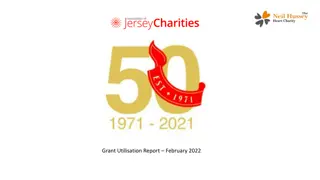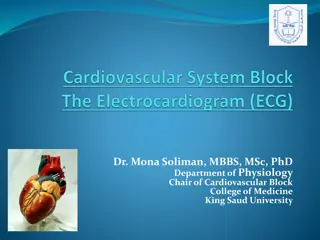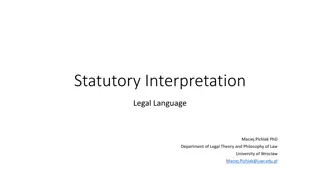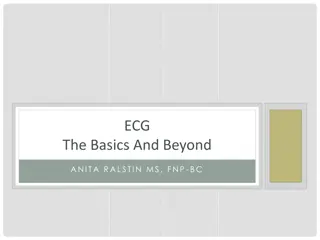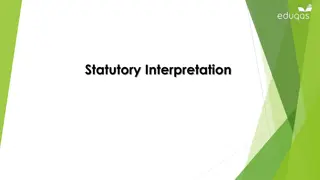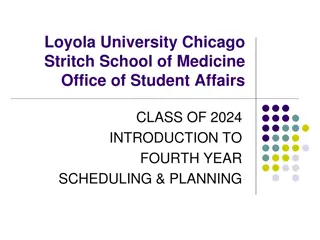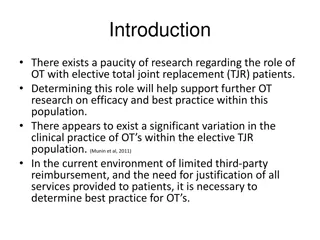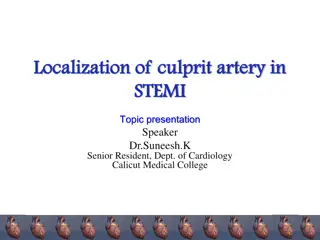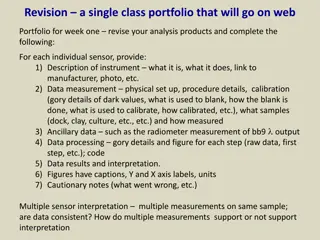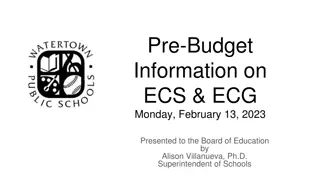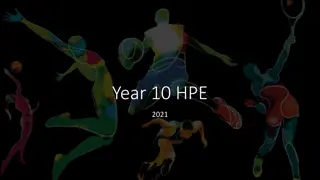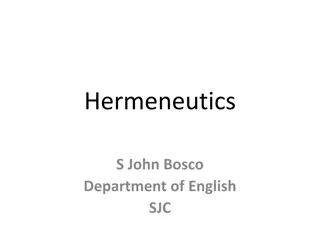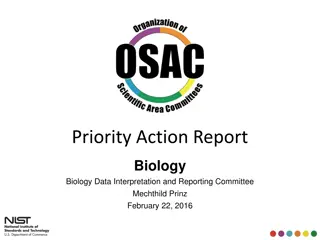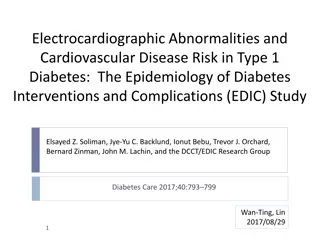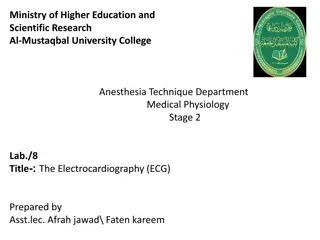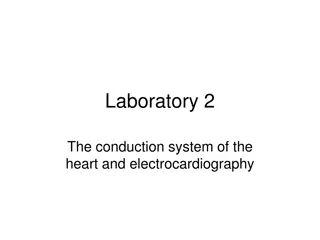Clinical ECG Interpretation Elective: Learning Objectives and Activities
This rotation aims to enhance clinical skills in ECG interpretation with a focus on myocardial and conduction abnormalities, arrhythmias, and tachycardias. Students will engage in e-learning modules, case studies, and literature reviews to master ECG analysis. The course emphasizes patient care, medical knowledge, communication skills, and professionalism without direct patient contact. Learning activities include assigned readings and interactive lessons.
Download Presentation

Please find below an Image/Link to download the presentation.
The content on the website is provided AS IS for your information and personal use only. It may not be sold, licensed, or shared on other websites without obtaining consent from the author.If you encounter any issues during the download, it is possible that the publisher has removed the file from their server.
You are allowed to download the files provided on this website for personal or commercial use, subject to the condition that they are used lawfully. All files are the property of their respective owners.
The content on the website is provided AS IS for your information and personal use only. It may not be sold, licensed, or shared on other websites without obtaining consent from the author.
E N D
Presentation Transcript
ECG Self Study Elective 2022-23 Academic Year Bernard Gros MD FACC ECG Elective Module Director
2021-22 Updates This course has been updated We have a new series of learning modules from the maker s of the Harvey Simulator called Umedic There are lessons in Kuracloud for your execution Meetings with Module Director (Dr Gros) will be held via Zoom or in- person by appointment Workload has also been reduced on comparison to prior years based on prior student feedback
Goals of the Rotation The primary goal of this rotation will be mastering the art and practice of clinical ECG interpretation. This will focus on the following areas: 1) The basics of ECG interpretation 2) Myocardial abnormalities 3) Conduction Abnormalities 4) Arrhythmias 5) Narrow and Wide complex tachycardias Upon completion of the 2-week session, the student will have: 1) Read an ECG Interpretation Outline by Dr Frank Yanowitz 91pages 2) Execute the three Umedic e-learning ECG learning modules: 1) Umedic Essential Electrocardiography, 2) Umedic essential arrhythmias, and 3) Umedic Essential Electrocardiography cases 3) Performed 6 lessons of ECG case studies in Kuracloud. Each lesson focuses on a key ECG interpretation topic with many challenging ECGs scattered within each lesson. This will provide the student with a broad and in- depth understanding of ECG analysis and diagnosis. 4) Perform a literature review of an ECG topic and perform an educational PowerPoint presentation on their selected topic.
Learning Objectives Patient Care: No patient contact. However, this rotation will provide skills in approaching clinical diagnosis by improving ECG interpretation skills which are vital in approaching the vast majority of patients seen in clinical practice. Medical Knowledge: ECG analysis and interpretation skills will be gained by performing this elective. The student will gain further insight into the electrophysiological properties of the heart, associated clinical scenarios, and clinical management. Interprofessional and Communication skills: Project presentation and discussion with course director on assigned material. Will develop a PowerPoint presentation (or equivalent) to present to faculty and demonstrate knowledge/understanding on an assigned topic. Professionalism: Show discipline in the art of self-study and the ability to present material to colleagues.
Learning Activities 1) Assigned Reading: Introduction to ECG Interpretation Version10.0 Dr Frank Yanowitz 2) Execute the three Umedic e-learning ECG learning modules: 1) Umedic Essential Electrocardiography, 2) Umedic essential arrhythmias, and 3) Umedic Essential Electrocardiography cases 3) Completion of 6 Kuracloud ECG Lessons (10 - 20 ECG cases per lesson) 4) Additional literature review on ECG topics as needed 5) As needed, student will schedule meetings with faculty/module director to receive guidance in ECG interpretation. 6) Assembling a PowerPoint presentation on an assigned topic and make a presentation during the 2-week block at a scheduled time with module director
Required Textbooks/Materials 1) Introduction to ECG Interpretation Version10.0 Dr Frank Yanowitz 2) Umedic E-learning ECG sessions 3) Marriott s Practical Electrocardiography 12thEdition 4) Assigned ECG packet (Kuracloud session) Optional Resources: Podrid s Real World ECGs: Volumes 1-4 Electronic version available to students via the library website Paperback version available in Library for in-house use Paperback version can be checked-out from module director for duration of course (Available upon request)
Umedic E-Learning Sessions 1)Umedic Essential Electrocardiography 2)Umedic Essential Arrhythmias 3)Umedic Essential Electrocardiography Cases
ECG cases in Kuracloud Request access to Kuraloud ECG s during the Bernard.gros@ucf.edu dale.Voorhees@ucf.edu dale.Voorhees@ucf.edu module from Ed-tech Team. Email Dale Voorhees at dale.Voorhees@ucf.edu for access Access to this will be granted during the module block 6 Lessons to complete (10 20 cases per lesson) You complete each ECG case then commit your response. Kuracloud then provides you with your answers next to the correct answer for your self-assessment. When you complete the lesion, email your completed file to module director: Bernard.gros@ucf.edu
Module Orientation A Zoom meeting with the module director (Dr Gros) will be scheduled for Monday AM on the first day of the module. o E-mail Dr Gros (Bernard.gros@ucf.edu) prior to the first day of the module to schedule your Zoom meeting on Monday first day of module. o If you need to schedule an alternative time you must make arrangements with Dr Gros. o Topic options for PowerPoint presentation will be discussed and must be approved by Dr Gros. A time will be scheduled for the presentation to take place via Zoom during the 2- week module Presentation will be 20-30min in duration covering the assigned ECG topic
Assessment 1) Formative feedback will be provided during Zoom Sessions 2) Summative: Course director s evaluation comes from: Review of student s completed Kuracloud lessons Student s PowerPoint presentation Zoom Discussions







